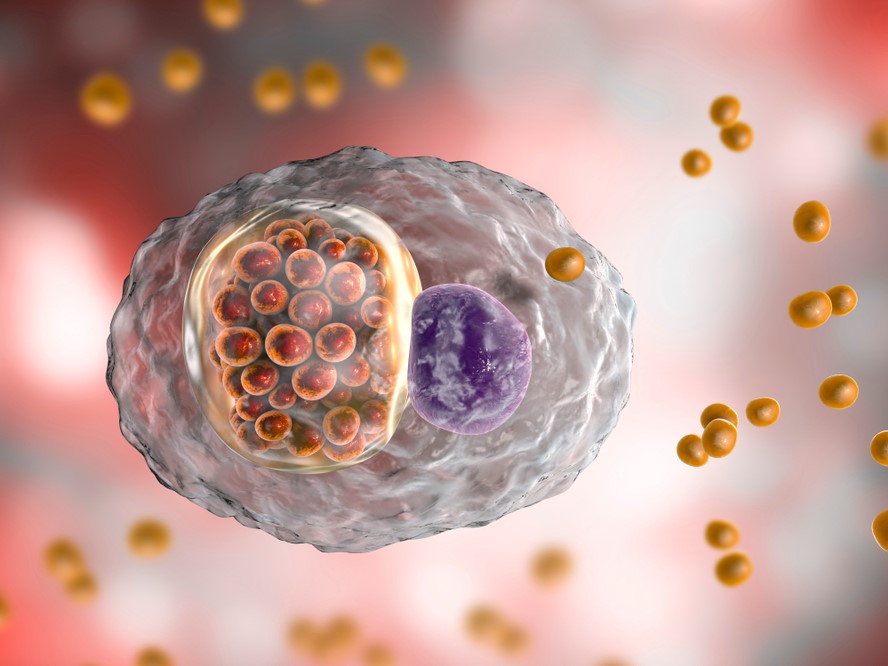Source: Thailand Medical News Nov 16, 2019 5 years, 4 months, 4 weeks, 16 hours, 54 minutes ago
Medical researchers from Danish SSI and Imperial College London have recently published promising results from the first clinical trials of a
vaccine against
chlamydia. This represents a significant step toward a preventative treatment for the world’s most common
sexually transmitted bacterial disease.

Currently,
chlamydia is the most common bacterial
sexually transmitted infection (
STI) in the world. The World Health Organization (WHO) estimates it affects around 131 million people globally each year.
Discovered that it was caused by the bacterium
Chlamydia trachomatis soon after Alexander Fleming’s 1928 discovery of Penicillin, the first antibiotic, and this type of drug became widely used. Antibiotics quickly became the standard of care for
chlamydia in the late 1930s and other bacterial-based
STIs, such a syphilis and gonorrhoea. The two main antibiotics used against
chlamydia are azithromycin and doxycycline; others on a WHO list are amoxicillin, erythromycin and tetracycline.
Although antibiotics have been shown to be highly effective at clearing
Chlamydia trachomatis from patients, they are not 100 percent viable and there is a lot of drug resistance now developing. This has pushed researchers to look at alternative treatment options for the most common
STI, including a preventative vaccine and gene therapy.
The
STI,
Chlamydia remains so common because of its asymptomatic nature, causing some people to be residual sources of infection. This makes it tricky to catch early and be treated with antibiotics, which is an issue since it causes serious diseases of the cervix, pelvis, testes and urethra.
Among the more serious complications of this
STI is pelvic inflammatory disease; the CDC estimates it occurs between 10% and 15% of women with untreated
chlamydia and can cause permanent damage to fallopian tubes and potentially fatal ectopic pregnancy. In addition, recurrence of the disease is common affecting approximately a quarter of patients, according to the US Center for Disease Control and Prevention (CDC) leading to another course of antibiotics. This over-use of antibiotics, combined with patient misuse or nonadherence to prescribed medications, has caused the emergence of antimicrobial resistant (AMR) strains of
Chlamydia trachomatis.
Unfortunately, this has left patients with a situation where the treatments used against the condition, although effective, are not fit for purpose to end reduce the rate of
chlamydia infections and its co-morbidities.
A recent WHO
STI guidance document explicitly stated “there is an urgent need to update global treatment recommendations to effectively respond to the changing AMR patterns of
STIs” and “therapeutics,
vaccines and barrier methods offer better opportunities for the prevention and care of
STIs.&am
p;rdquo;
Typically, vaccines have been shown to be successful at drastically curbing infection rates, they are responsible for the eradication of ; for example, widespread vaccination of girls aged 12 and 13 against human papillomavirus (HPV) was recently shown by a Canadian study to significantly reduce the prevalence of genital and cervical cancer-causing strains of the virus.
SSI Department of Infectious Disease Immunology director Dr Frank Follman told
Thailand Medical News, “The success of the HPV
vaccines has shown us how effective vaccination can be against a sexually transmitted infection and has encouraged researchers from Statens Serum Institut (SSI), Denmark, and Imperial College London to develop a preventative
vaccine for
chlamydia.”
“
Chlamydia is very treatable if identified, but as many people don’t have symptoms it can be missed.One of the problems we see with current efforts to treat
chlamydia is that despite a very big screening, test and treat programme, people get repeatedly re-infected. If you could introduce a protective
vaccine, you could break that cycle.” commented Imperial College London Department of Infectious Disease Mucosal Infection and Immunity unit head Professor Robin Shattock.
After 2 decades of research, involving discovering a weakness in
chlamydia to target, the UK-Danish team recently published results from the first human trials of two versions of their
vaccine. Both forms of the
vaccine targeted the recombinant protein subunit CTH522 one was modified with CAF01 liposomes, the other with aluminium hydroxide.
The developed two versions of the
vaccines were well tolerated and immunogenic; no participants of the placebo group achieved an immune response.
Professor Shattock commented: “The findings are encouraging as they show the
vaccine is safe and produces the type of immune response that could potentially protect against
chlamydia.” Folmann explains the reason for its success was the
vaccine’s “combination of neutralizing antibodies and T cells”.
“The most important result is that we have seen protective antibodies against
Chlamydia in the genital tracts. Local immunity in the genital tract is important to stop the infection as quickly as possible” Follmann added in a statement. This will help to generate a long term immune response against the bacterial condition.
As a result of the
vaccine’s success, the researchers are planning to move into further clinical trials to find out “whether it is truly protective or not”, Shattock explained. It is likely that the more effective of the two, the CTH522
vaccine adjuvanted with CAF01 liposomes, will become the primary focus of future trials. In the long term, the researchers are considering combining their
chlamydia vaccine with the successful HPV
vaccine “in the same target population,” to further prevent severe consequences these
STIs can have on women’s health, commented Folmann.
Reference: Safety and immunogenicity of the chlamydia vaccine candidate CTH522 adjuvanted with CAF01 liposomes or aluminium hydroxide: a first-in-human, randomised, double-blind, placebo-controlled, phase 1 trial, The Lancet DOI :
https://doi.org/10.1016/S1473-3099(19)30279-8
